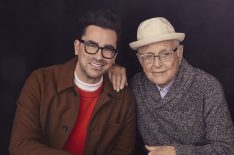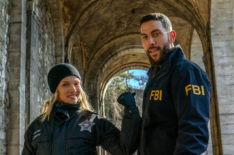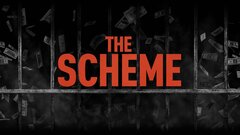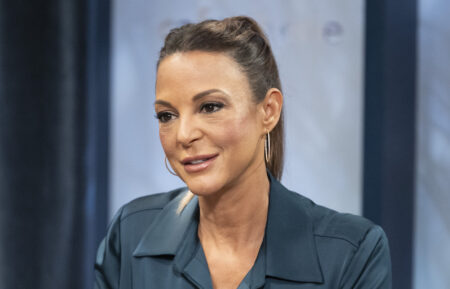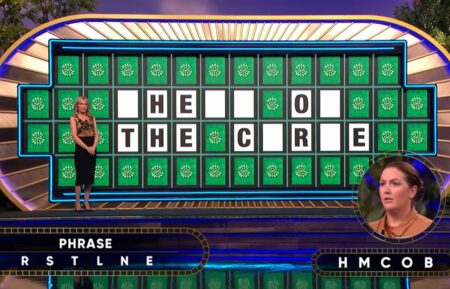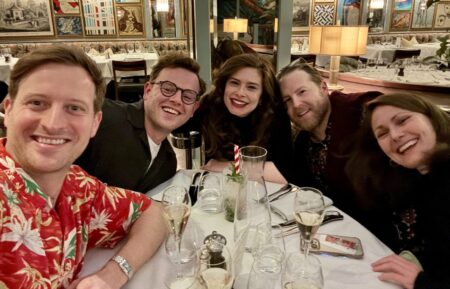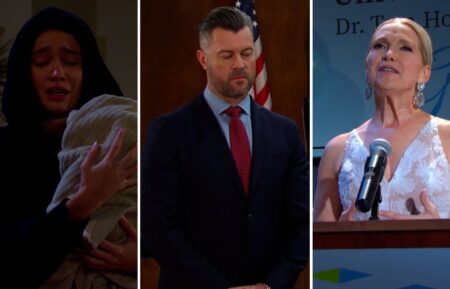‘The Scheme’ Director on How It Documents a Broken System Beyond College Sports
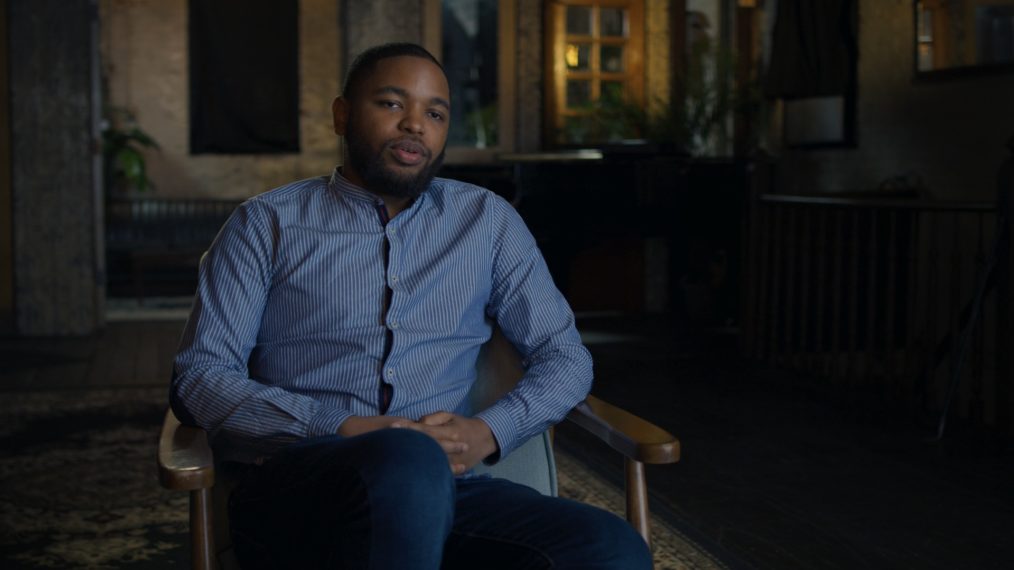
It wasn’t long ago where Christian Dawkins (pictured above), an aspiring twenty-something sports manager, stood in front of a federal judge to face heavy duty bribery charges. This was in addition to a separate case where he was found guilty of a pay-for-play scheme involving Adidas-sponsored college basketball programs. How a kid from Saginaw, Michigan ended up at the center of a two-year undercover FBI investigation into college basketball is the subject of an upcoming HBO Sports documentary The Scheme.
The film allows Dawkins to tell his side of a story that sent shockwaves throughout the NCAA. Adding further insight are his parents, attorney Steve Haney and journalists Dan Wezel and Rebecca Davis O’Brien. Director Pat Kondelis was compelled to work on the doc upon an initial meeting with Dawkins.
“I spent three days with him, having meals together and shadowing him. Asking him questions. Talking to him. He was such a fascinating guy,” Kondelis said. “He was so different from the way he was depicted in all these other reports. His story was absolutely bonkers. The idea of telling this from Christian’s perspective and telling the real story was really what I wanted to do.”
Ahead of the premiere, Kondelis goes into his experience putting the project together and how it can shine a light on a broken system.
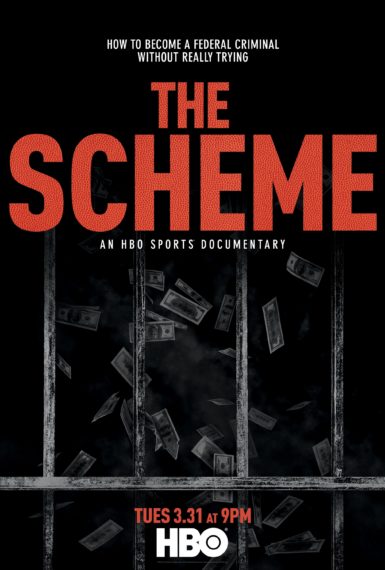
HBO
How hard was it to gain the trust of Christian and his parents?
Pat Kondelis: I think it was probably harder to gain his parents’ trust than Christian. I don’t think there was a whole lot of trust issues between the two of us right off the bat. We kind of hit it off. He was eager to tell his story whereas his parents had been beat-up in the press. This was a life-altering event for them. It was a little bit of a different vantage point for them than Christian. I think I read every article written about him before we met. It was fascinating because where I saw the story was very different from some of the articles written about him. He was a much different person than the person portrayed.
It’s really fascinating how you thread these real-time conversations that took place over the phone and in person between the parties involved. Real archival and evidential footage. This element really adds to the telling as the story unfolds.
That was a really important part of this. We were not telling the story in a past tense, revisionist way where Christian could say whatever he wanted. We had these FBI wiretaps and phone conversations and this undercover video. The audience could be in the moment and hear the motivation and hear the thinking through everything where these people don’t know they’re being recorded. The majority of what Christian said we could corroborate very easily. You can hear everything. These conversations happening behind the scenes that they don’t know are being recorded.
The audience gets a fly-on-the-wall type of experience where they are in the room. They are on the phone with these people as they are having these conversations. I feel very grateful we were able to tell this story in real-time because so much of this story is conjecture. It’s a very complex, complicated story. But when you can hear the calls, hear what people are saying and see what is actually happening in the room with this undercover video. It really can put lots of questions and theories to bed. It creates lots more questions and theories as well.
How much time was dedicated to this project? What was the timeline in getting it done as the events spoken about didn’t happen that long ago?
We’re right about a little over a year. Probably, 14 months which is the fastest we’ve ever done a project. A lot of that was intentional because I wanted to interview Christian before the second trial had finished and wrapped up. While there was still some uncertainty about what was going to happen, that’s when I wanted to get him and some of the other key people involved in this. I wanted their opinions in the moment. Their answers may have changed depending on what would happen with the sentencing.
If he would be found not guilty, maybe it wouldn’t have been seen as that big of a deal. If he got sentenced 10 years, it would have put a slant on whatever they said. We wanted to get everybody in the chair with the cameras rolling as fast as possible to get their unguarded, honest opinion in the moment before this thing really finished. We started right away.
At the end of the documentary you mention reaching out to the FBI and NCAA and coaches, but they didn’t participate in the project. Were there any lack of responses that surprised you because you’d figure they would want to tell their side or defend certain parts of what happened?
I understand the coaches not wanting to talk, but there were certain other people I was surprised they didn’t want to talk. Book Richardson, Tony Bland, who was the assistant coach at USC and Merl Code. The issue of people not talking was a massive issue with this documentary. I think this is the fewest people I’ve had sit and talk during a documentary that I’ve ever done. It was not for lack of effort. This was a case that for whatever reason people didn’t want to talk.
How did your opinion or preconceived notions of Christian change during the process?
Christian is a very complex, dynamic, layered individual. He is a highly intelligent person that has obviously done some very stupid things. He is self deprecating, but has a pretty strong sense of self confidence at the same time. There is a lot of duality with Christian that is very interesting. The other thing I found fascinating with Christian is within this world there is so much greed. Christian was out to make money as well, but the one thing that separated him from other people in that world was that he wasn’t stepping on anybody else to get ahead.
Listening to those tapes and talking to people that worked with him, Christian’s angle was how we can all win. That was a kind of pre-capitalist interesting way to look at this world that is normally pretty shady, pretty seedy, normally a lot of greed. Every deal he was making was like, “Hey, if we do this you could get this money. You may even get more money.” He is not trying to keep it for himself necessarily. He is trying to spread it around for people that are working with him.

What do you want the viewer to walk away with when they finish watching?
That there is much more to this story than what was previously reported. All the themes of the story are absolutely fascinating. You have a billion dollar industry, athletes, massive institutions with these universities. All of these things are colliding with a criminal justice that is very unique from a story standpoint. It’s a roller coaster ride I want the audience to experience in a similar way I did as I learned all this information.
To see, this is what happens in this world. This is what happens with undercover FBI investigations. This is what happens in federal prosecutions. This is one of the most unique cases, unprecedented cases I can think of where there is a merging of sports and criminal justice elements to it. In that light, I don’t know you could get a better example. Ultimately, I want people to develop their own opinion and ask themselves the questions of what was this for? Was this necessary? Should this have happened? Was there a cover up? Why are the coaches being protected? There is ambiguity, and I want the audience to make up their own mind if they think this was right or wrong and if this should have happened.
The headlines are still there today as the debate of amateurism and the idea of if the NCAA compensating student athletes rages on. What kind of impact do you think this will have on policies and the organization’s inner workings? Will it have an impact?
I hope it has an impact. I don’t know if it will. There have been so many opportunities with the NCAA and the coaches where they could try to change things and make them better. I don’t know if it will actually happen. I wish it would. I would love for this to be something people could point to and say, “We should really have a serious conversation of changing this.” I don’t understand why more head coaches aren’t coming out saying, “Hey, these rules are ridiculous. They don’t work. This should change.”
I don’t know why they wouldn’t say that as opposed to, “I haven’t paid anybody. There is nothing to see here. We run a clean program.” It’s all garbage. It’s all ridiculous. Nobody buys it. And most people probably don’t really care. But when you have schools like Louisville, which I think was the most profitable basketball program making last year like $42 million a year off basketball. To think they can make that kind of money at the same time saying these players shouldn’t get anything. I think most Americans see that as an un-American practice. I would love for this to be a catalyst for change. I’m just not convinced that’s going to happen.
The Scheme, premieres March 31, 9/8c, HBO
From TV Guide Magazine
How 'Countdown' Recruited Jensen Ackles to Go Full 'Die Hard'
Countdown boss Derek Haas talks creating the character around Ackles, and the cast teases the “Avengers”-like team of the crime thriller. Read the story now on TV Insider.

